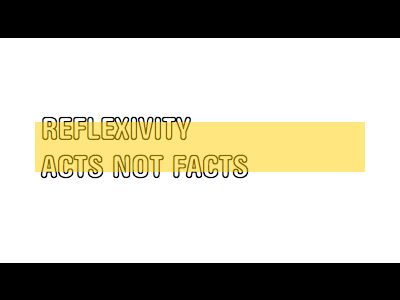
To summarise my five points:
1. We must examine the criteria used by the architectures to iterate the space.
2. If everyone is able to re-make the space, we must be prepared for destructive changes.
3. Inhabitants will subvert and game the map of measurements in order to live their everyday lives.
4. Inhabitants will have to negotiate new limits and norms to cope with new fluidities.
5. New forms of measurement will create new places of protocol and government, and new forms of transgression.
Although I don’t know anything about architecture, from my space-ship I do see these issues arising not only in our iterative city, but anywhere the inhabitants can monitor and re-shape their space: on the web, in online games, in our homes—and in the much larger simulations of airports and so on that we’ve been watching earlier.
I can imagine, in our space-ship, all these questions of reflexivity coming to bear (I think reflexivity is what binds all these points).
Imagine the city is monitored and the criteria is efficiency of travel. The architects attempt to make your route to the shops as short as possible. Like television ratings, they might monitor just a little of the total behaviour, perhaps just once a month. If you knew that day, you could deliberately walk slowly to the shops, to trick them into moving your habitat and making your journey quicker for the next month. What would the architects do about this? They would prevent you, somehow, from doing it.
We would have an arms-race between the inhabitants and the architects.
But this would happen! A collection of measurements is never a map of facts. Maps are never facts.
Maps are things that distort the spaces they seek to represent. They change the space by choosing what to measure in the first place, and secondly in the way people respond to the mapped measurements.
This is my motto at the moment, my thing to the remember. ACTS NOT FACTS: revealing a fact is an act in itself and acts-in-waiting.